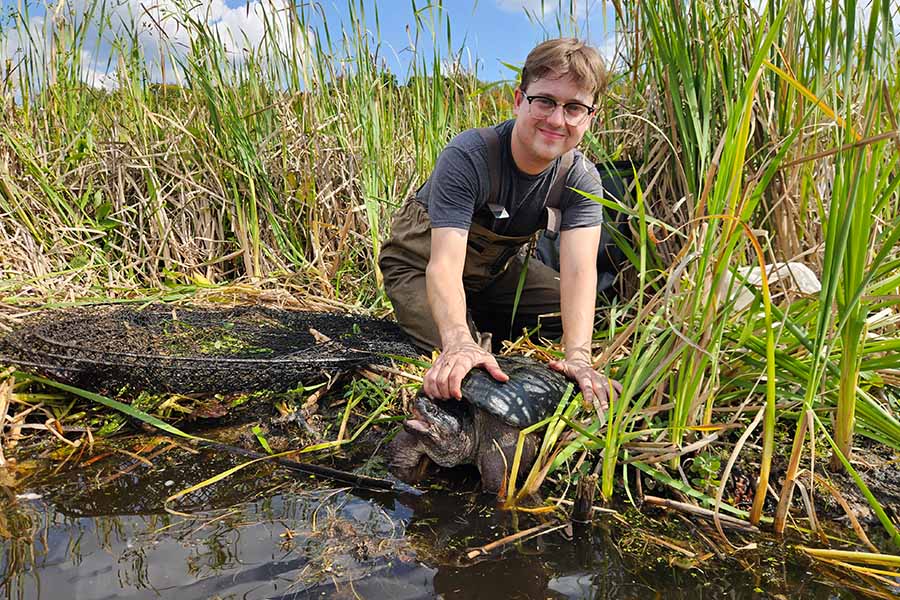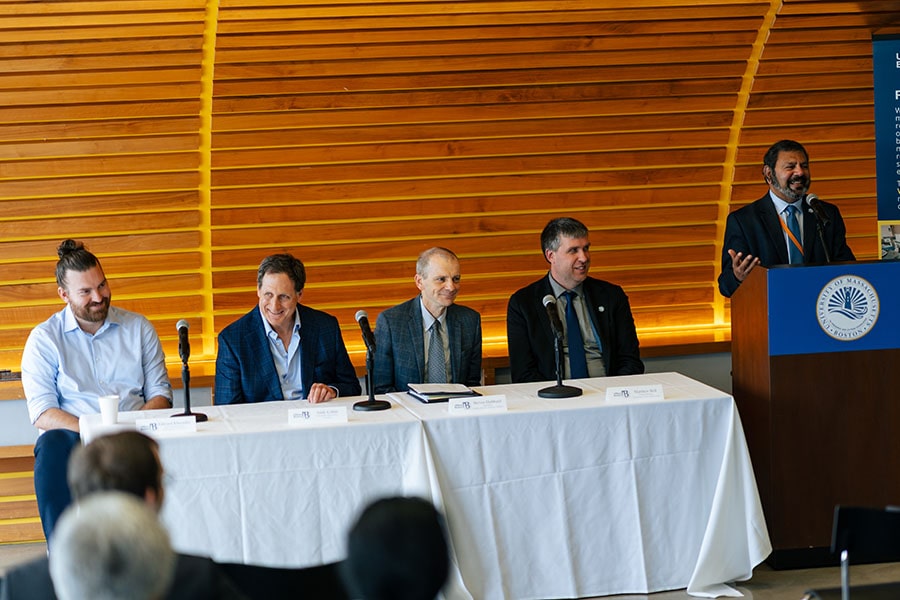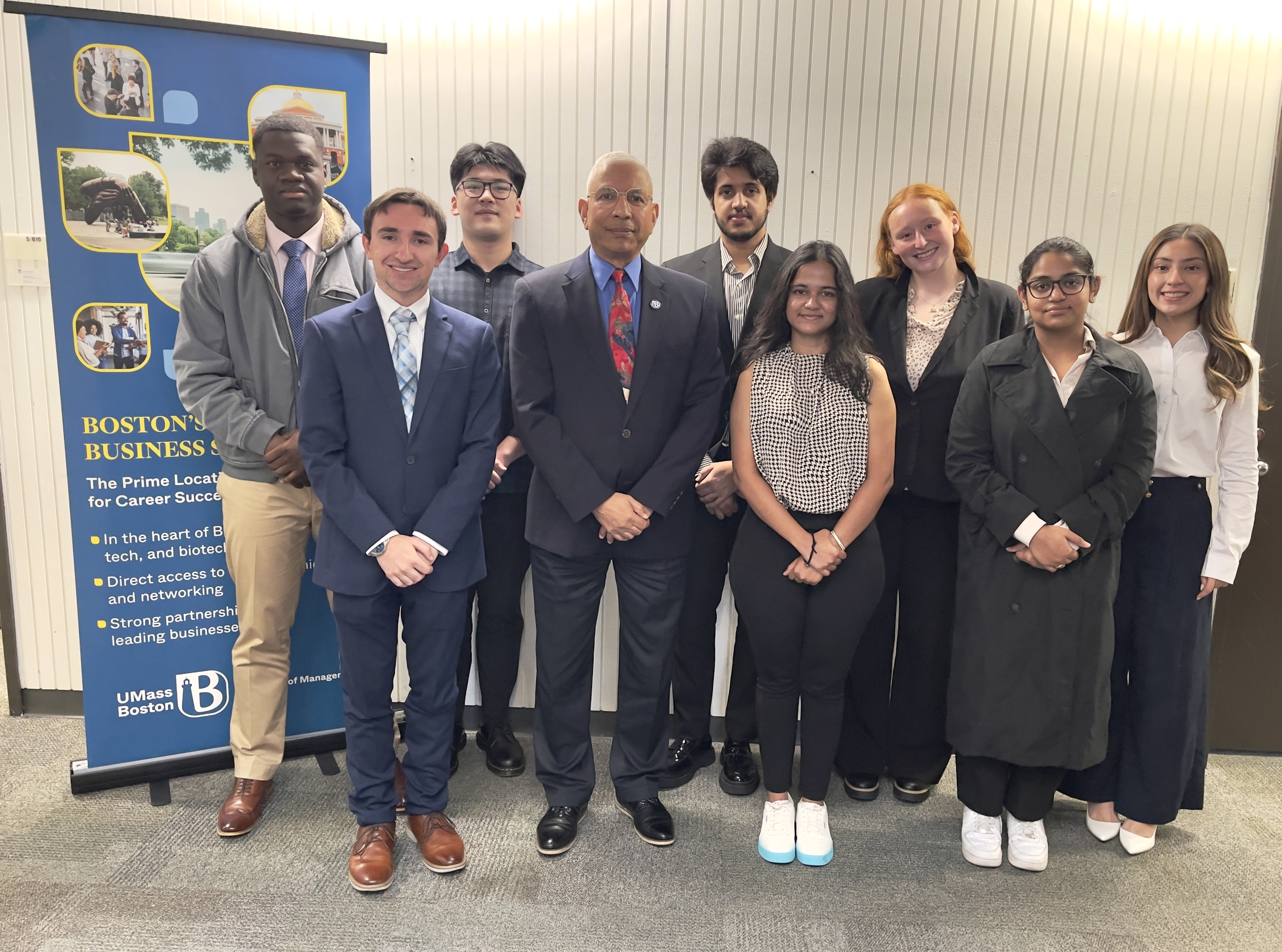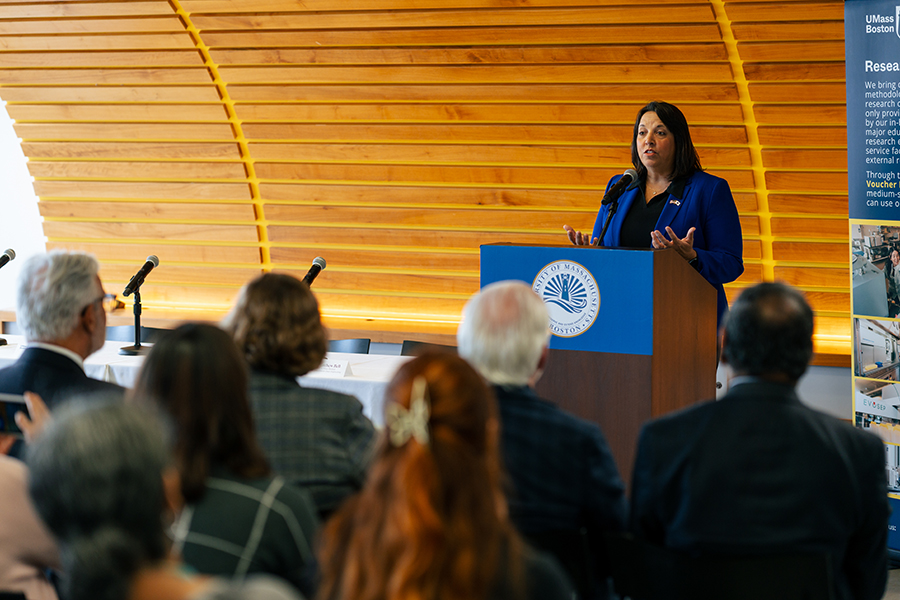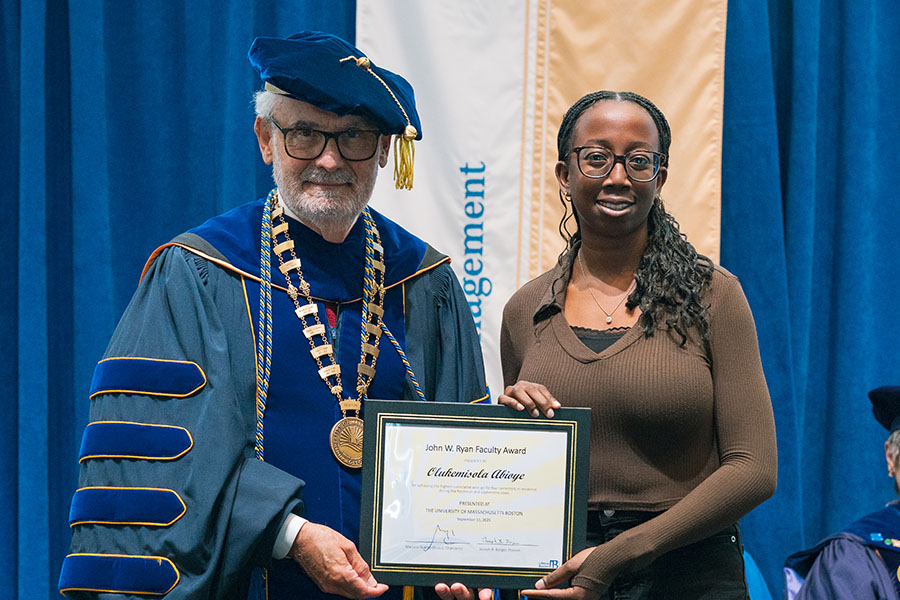Networked AI Lab Established at UMass Boston
Located in the College of Science and Mathematics, the Networked AI Lab will seek solutions for complex societal problems while preparing the next generation of engineers and computer scientists in the emerging interdisciplinary field of networked artificial intelligence (AI).
As autonomous technologies continue to advance, the networked AI research lab is introducing a unique approach to these systems. One that emphasizes collaboration between different types of autonomous vehicles. Self-driving cars equipped with laser-based LiDAR and drones supplied with 360-degree cameras work together, combining unique perspectives to develop a stronger and more intelligent network than any one vehicle could achieve alone.
Bo Sheng, principal investigator and associate professor of computer science, leads research activity in the newly launched lab. The work that takes place in the lab addresses significant challenges in transportation safety, emergency response, environmental monitoring, and defense applications by advancing the science of collaborative autonomous systems.
“The idea is similar to how human teams with different areas of expertise collaborate together by sharing complementary insights,” said Sheng. “Through collaboration, they build a more complete understanding than any one person could achieve alone.” Sheng’s research applies this principle to artificial intelligence and autonomous systems by developing advanced communication protocols and data integration techniques.
The researchers pair sensing technologies with autonomous cars and drones. The cars are equipped with light detection and ranging systems (LiDAR) for creating precise 3D maps, depth cameras for spatial understanding of the environment, and regular cameras that capture visual information from multiple angles. Meanwhile, the drones provide 360-degree visibility with a combination of regular and depth cameras.
This multi-modal sensing approach enables each vehicle to perceive its surroundings in different ways. When these vehicles communicate with each other, they create a networked intelligence that surpasses what any single vehicle could achieve independently. For example, a drone's 360-degree aerial view might identify traffic patterns that cannot be detected from the car's perspective, while the car's high-precision LiDAR measurements might detect subtle environmental details that enhance the drone's observations.
“What distinguishes our approach is the sophisticated way these diverse systems collaborate despite using different AI models and generating varying types of data,” Sheng explained. “Each vehicle processes information using algorithms tailored to its own sensors, but through our research, they learn to exchange and integrate the most relevant information coherently.”
The Networked AI lab is supported through a $439,695 award from the U.S. Department of Defense. Among those helping drive this research forward is Allen Yang, a fourth year PhD candidate working with Professor Sheng. With Yang’s expertise in federated learning, a method that allows multiple devices to train AI models collaboratively without sharing data, Yang examines how autonomous systems can exchange information efficiently while preserving security and computational performance.
By combining innovative research with inclusive education, the Networked AI Lab is shaping a future where technology and opportunity advance forward together.
Latest University News
- Biology Team to Survey Reptiles and Amphibians in National Parks with $190K NPS Cooperative AgreementProfessors of Biology Rob Stevenson and Doug Woodhams, from the College of Science and Mathematics, have received a two-year award for $190,000 from the Department of the Interior’s National Park Service to develop a comprehensive survey of reptiles and amphibians in participating parks.
- In Fruit Fly Eyes, UMass Boston Researcher Sees Potential Medical DiscoveriesJens Rister, an associate professor in UMass Boston’s biology department, has just been awarded more than $1,700,000 in funding from the National Eye Institute of the NIH to research a protein that guides the development of color vision in fruit flies. By learning more about the underlying mechanisms, Rister hopes to learn about human diseases such as Oculoauricular Syndrome, a genetic condition that affects eyes and ears.
- Quantum Experts Discuss Impact of Investment on Students, Science and BusinessesFollowing the announcement that UMass Boston will be receiving a $3.8M grant to develop and commercialize quantum hardware, expert panelists discussed the positive impact that investment in quantum research can have.
- College of Management Welcomes a Global Cohort of Dean’s Student AmbassadorsThe College of Management at the UMass Boston is proud to announce its newest cohort of Dean’s Student Ambassadors–an extraordinary group of undergraduate leaders who will represent the College throughout the 2025-2026 academic year.
- UMass Boston Secures $3.8M for Collaborative Expanding Quantum Hardware Development, CommercializationMassTech Builds on its Support of UMass Boston, Western New England University-led Initiative
- Olukemisola “Kemi” Abioye has been recognized as the 2025 Ryan Award winner after achieving the highest cumulative GPA over four semestersAfter years of hard work and learning to balance extracurriculars with jobs, internships, and school, Kemi Abioye received the 2025 Ryan Award at UMass Boston.








